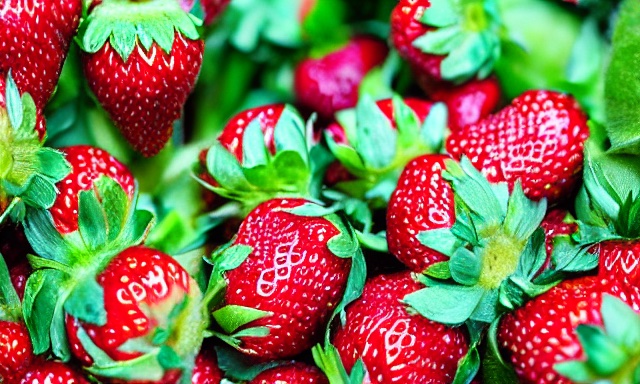Internet Asks: “Strawberry Allergy”
Strawberries are cherished worldwide for their flavor and versatility in desserts, smoothies, and various dishes. Yet, for some individuals, consumption of this fruit can provoke an allergic response. A strawberry allergy, a variety of food allergy, arises when the body's immune system overreacts to strawberry proteins. This article will explore the symptoms, triggers, and available treatments for this type of allergy.
sponsored links

What is a strawberry allergy?
A strawberry allergy is an adverse immune response to proteins found in strawberries. The immune system of some individuals identifies these proteins as harmful and produces antibodies to fight against them, leading to an allergic reaction. The allergic reaction can be mild, moderate, or severe, depending on the individual's sensitivity to the proteins.
Symptoms of strawberry allergy
The symptoms of a strawberry allergy can range from mild to severe and can occur within minutes to hours after consuming strawberries. Common symptoms include:
- Hives or rash
- Swelling of the face, lips, tongue, or throat
- Itching or tingling in the mouth or throat
- Nasal congestion or runny nose
- Wheezing or difficulty breathing
- Nausea or vomiting
- Diarrhea or stomach cramps
In severe cases, a strawberry allergy can lead to anaphylaxis, a life-threatening allergic reaction that requires immediate medical attention.
Causes of strawberry allergy
The presence of proteins in strawberries is considered to be one of the possible causes of strawberry allergy. There are several proteins in strawberries that can cause an allergic reaction, including Fra a 1, Fra a 2, and Fra a 3. Fra a 1 is the most common allergen found in strawberries and is responsible for most of the allergic reactions. The exact cause of strawberry allergies is still unknown, but it's believed to be a combination of genetic and environmental factors.
Risk factors for strawberry allergy
Some people are more likely to develop a strawberry allergy than others. Risk factors for strawberry allergy include:
- Family history of food allergies or asthma
- History of allergic reactions to other foods or substances
- Asthma, eczema, or other allergic conditions
- Exposure to environmental allergens, such as pollen or animal dander
- Use of certain medications, such as aspirin or nonsteroidal anti-inflammatory drugs (NSAIDs)
sponsored links
Diagnosis of strawberry allergy
If you suspect you have a strawberry allergy, it is essential to see a doctor for a proper diagnosis. An allergist can perform tests to confirm the diagnosis and determine the severity of the allergy. The most common tests used to diagnose strawberry allergy include:
- Skin prick test: A small amount of strawberry extract is placed on the skin, and the skin is pricked to see if there is an allergic reaction.
- Blood test: A sample of blood is taken and analyzed for the presence of antibodies to strawberry proteins.
- Oral food challenge: A small amount of strawberry is consumed under medical supervision to see if there is an allergic reaction.
Treatment of strawberry allergy
The best way to manage a strawberry allergy is to avoid consuming strawberries and products containing strawberries. If you accidentally consume strawberries and experience symptoms, antihistamines can help alleviate mild symptoms such as hives, rash, or nasal congestion. In severe cases, an epinephrine auto-injector may be needed to treat anaphylaxis.
Takeaway
Strawberries are a delicious and nutritious fruit, but for some people, they can trigger a potentially dangerous allergic reaction. If you suspect that you have a strawberry allergy, see an allergist for diagnosis and treatment. Remember to always read food labels and ask about ingredients when eating out to avoid consuming strawberries or products containing strawberries.
sponsored links
References
- National Institute of Allergy and Infectious Diseases. (2019). Food allergy. Retrieved from https://www.niaid.nih.gov/diseases-conditions/food-allergy.
- BioMed Central Ltd. Generalized allergic reaction in response to exercise due to strawberry gibberellin-regulated protein: a case report. https://aacijournal.biomedcentral.com/articles/10.1186/s13223-022-00692-0
- The University of Manchester. Allergy information for: Strawberry (Fragaria ananassa ). http://research.bmh.manchester.ac.uk/informall/allergenic-food/index.aspx?FoodId=75
- "Food Allergy." Mayo Clinic, Mayo Foundation for Medical Education and Research, 1 Oct. 2020, www.mayoclinic.org/diseases-conditions/food-allergy/symptoms-causes/syc-20355095.
Ready to level-up?
Create meal plans 10x faster, follow up with your clients through our mobile app, and never struggle with meal planning or recipe management again.